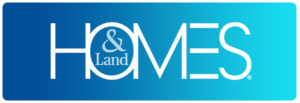Home Finance
Buying a home is exciting, but figuring out the financing side of things can feel overwhelming. Chin up: Choosing a mortgage isn’t all that painful if you know the lingo. Once you’ve done some homework and nailed down a budget and down payment amount, and you’ve reviewed your credit, you’ll have a better idea of what loan works best for your needs.
Here’s a primer on some of the most common types of mortgages.
5 Types Of Mortgage Loans:

Conventional
Mortgages

Jumbo
Mortgages

Government-Insured
Mortgages

Fixed-Rate
Mortgages

Adjustable-Rate
Mortgages
1. Conventional Mortgages
- Can be used for a primary home, second home or investment property.
- You can ask your lender to cancel PMI once you’ve gained 20 percent equity.
- Can be used for a primary home, second home or investment property.
- You can ask your lender to cancel PMI once you’ve gained 20 percent equity.
- Likely must pay PMI if your down payment is less than 20 percent of the sales price.
- Significant documentation required to verify income, assets, down payment and employment.
- Conventional loans are ideal for borrowers with strong credit, a stable income and employment history, and a down payment of at least 3 percent.
A conventional mortgage is a home loan that’s not insured by the federal government. There are two types of conventional loans: conforming and non-conforming loans.
A conforming loan simply means the loan amount falls within maximum limits set by Fannie Mae or Freddie Mac, government agencies that back most U.S. mortgages. On the other hand, loans that don’t meet these guidelines are considered non-conforming loans. Jumbo loans are the most common type of non-conforming loan.
Generally, lenders require you to pay private mortgage insurance on many conventional loans when you put down less than 20 percent of the home’s purchase price.
2. Jumbo Mortgages
- Can be used for a primary home, second home or investment property.
- You can ask your lender to cancel PMI once you’ve gained 20 percent equity.
- Can be used for a primary home, second home or investment property.
- You can ask your lender to cancel PMI once you’ve gained 20 percent equity.
- Likely must pay PMI if your down payment is less than 20 percent of the sales price.
- Significant documentation required to verify income, assets, down payment and employment.
- Conventional loans are ideal for borrowers with strong credit, a stable income and employment history, and a down payment of at least 3 percent.
Jumbo mortgages are conventional loans that have non-conforming loan limits. This means the home prices exceed federal loan limits. For 2021, the Federal Housing Finance Agency raised the maximum conforming loan limit for a single-family property from $510,400 (in 2020) to $548,250. In high-cost areas, the ceiling for conforming mortgage limits is 150% of that limit or $822,375 for 2021. Jumbo loans are more common in higher-cost areas and generally require more in-depth documentation to qualify. To view current Jumo loan rates, click here!
3. Government-Insured Mortgages
- Can be used for a primary home, second home or investment property.
- You can ask your lender to cancel PMI once you’ve gained 20 percent equity.
- Can be used for a primary home, second home or investment property.
- You can ask your lender to cancel PMI once you’ve gained 20 percent equity.
- Likely must pay PMI if your down payment is less than 20 percent of the sales price.
- Significant documentation required to verify income, assets, down payment and employment.
- Conventional loans are ideal for borrowers with strong credit, a stable income and employment history, and a down payment of at least 3 percent.
The U.S. government isn’t a mortgage lender, but it does play a role in helping more Americans become homeowners. Three government agencies back loans: the Federal Housing Administration (FHA loans), the U.S. Department of Agriculture (USDA loans) and the U.S. Department of Veterans Affairs (VA loans).
FHA loans: Backed by the FHA, these loans help make homeownership possible for borrowers who don’t have a large down payment saved up and don’t have pristine credit. Borrowers need a minimum FICO score of 580 to get FHA’s maximum 3.5 percent financing. However, a credit score of 500 is accepted with at least 10 percent down. FHA loans require two mortgage insurance premiums: one is paid upfront, and the other is paid annually for the life of the loan if you put less than 10 percent down. This can increase the overall cost of your mortgage.
Read more about what makes FHA loans so popular among mortgage borrowers.
VA loans: VA loans provide flexible, low-interest mortgages for members of the U.S. military (active duty and veterans) and their families. VA loans do not require a down payment or PMI, and closing costs are generally capped and may be paid by the seller. A funding fee is charged on VA loans as a percentage of the loan amount to help offset the program’s cost to taxpayers. This fee, as well as other closing costs, can be rolled into most VA loans or paid upfront at closing. If interested in a VA loan you can check the current rates here!
USDA loans: USDA loans help moderate- to low-income borrowers buy homes in rural areas. You must purchase a home in a USDA-eligible area and meet certain income limits to qualify. Some USDA loans do not require a down payment for eligible borrowers with low incomes.
.
4. Fixed-Rate Mortgages
- Can be used for a primary home, second home or investment property.
- You can ask your lender to cancel PMI once you’ve gained 20 percent equity.
- Can be used for a primary home, second home or investment property.
- You can ask your lender to cancel PMI once you’ve gained 20 percent equity.
- Likely must pay PMI if your down payment is less than 20 percent of the sales price.
- Significant documentation required to verify income, assets, down payment and employment.
- Conventional loans are ideal for borrowers with strong credit, a stable income and employment history, and a down payment of at least 3 percent.
Fixed-rate mortgages keep the same interest rate over the life of your loan, which means your monthly mortgage payment always stays the same. Fixed loans typically come in terms of 15 years, 20 years, or 30 years.
5. Adjustable-Rate Mortgages
- Can be used for a primary home, second home or investment property.
- You can ask your lender to cancel PMI once you’ve gained 20 percent equity.
- Can be used for a primary home, second home or investment property.
- You can ask your lender to cancel PMI once you’ve gained 20 percent equity.
- Likely must pay PMI if your down payment is less than 20 percent of the sales price.
- Significant documentation required to verify income, assets, down payment and employment.
- Conventional loans are ideal for borrowers with strong credit, a stable income and employment history, and a down payment of at least 3 percent.
Unlike the stability of fixed-rate loans, adjustable-rate mortgages (ARMs) have fluctuating interest rates that can go up or down with market conditions. Many ARM products have a fixed interest rate for a few years before the loan resets to a variable interest rate for the remainder of the term. Look for an ARM that caps how much your interest rate or monthly mortgage rate can increase so you don’t wind up in financial trouble when the loan resets.
Recommended Lenders
Work With Us
Whether it’s connecting with our clients to find exactly what they are looking
for, or negotiating the best price on their behalf, you can ensure you’re in good
hands.



